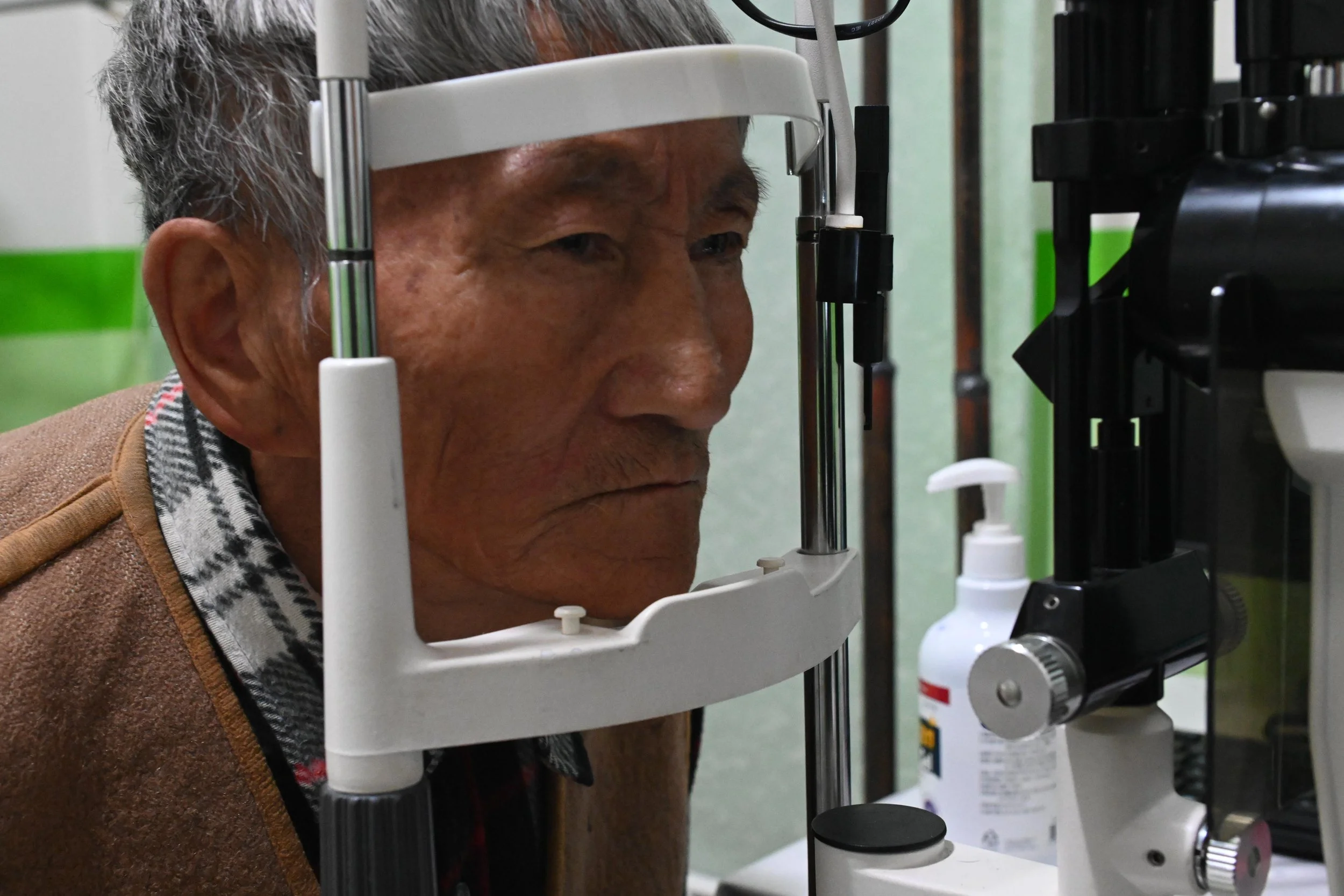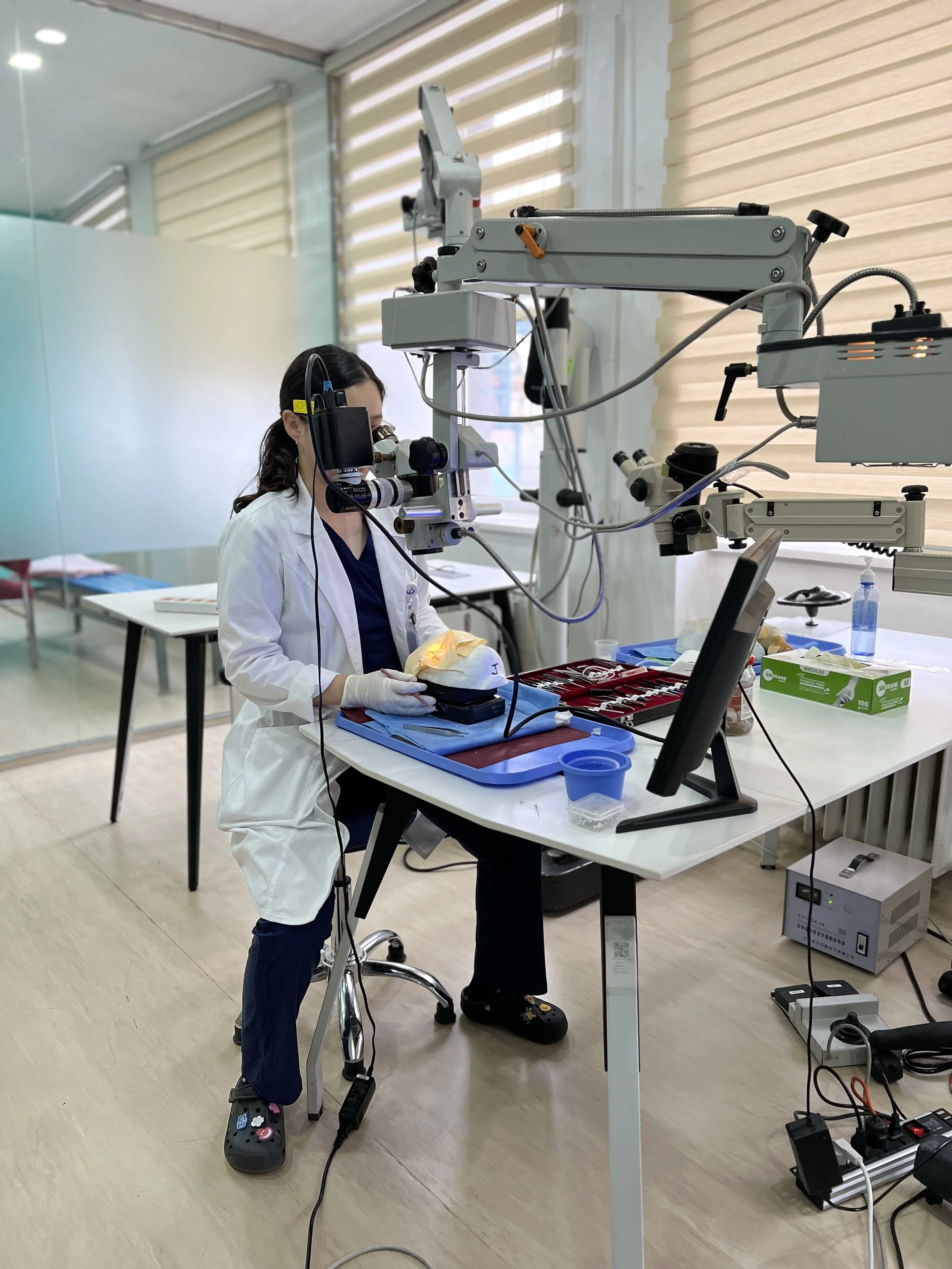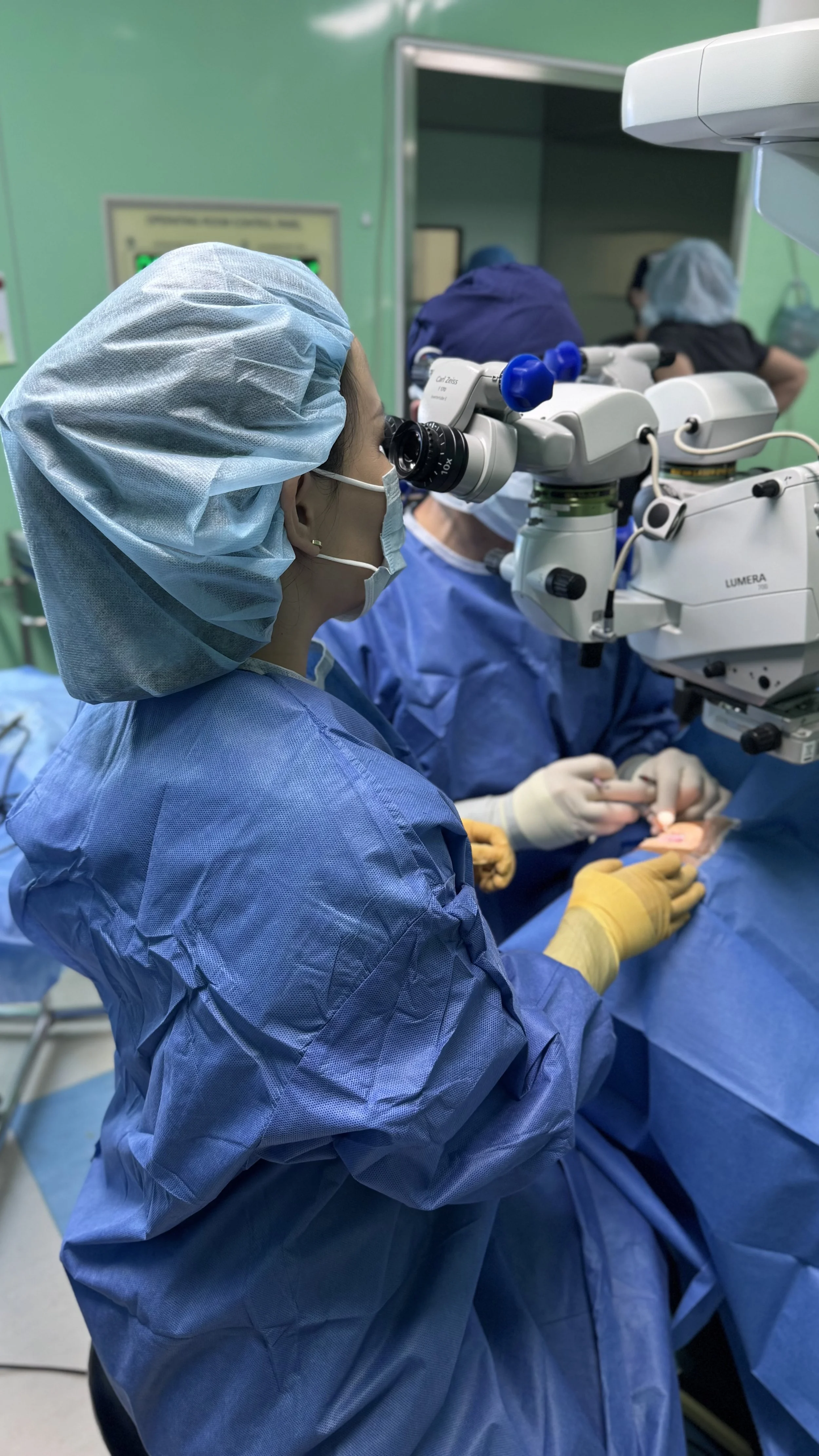Why Mongolia Must Train Its Own Ophthalmology Residents at Home
Mongolia faces a critical disparity in access to eye care, particularly outside the capital. Though nearly 36 ophthalmologists graduate annually, many lack the training to provide comprehensive eye care services such as cataract surgery in their home provinces. This results in patients traveling long distances for treatment. Establishing a strong intraocular surgical program within Mongolia enables residents to serve their communities directly, while ensuring that training is adapted to the realities of the country’s healthcare system.
Benefits to Residents of In-Country Training
Training at home allows residents to gain hands-on experience with the conditions most common in Mongolia, such as the high prevalence of cataracts and eye trauma cases related to rural lifestyles. This provides practical, relevant experience that immediately prepares them for independent practice. Working within Mongolia also ensures continuity of mentorship, as residents can build sustained relationships with local faculty who understand both the clinical and cultural context of patient care. These long-term professional bonds are invaluable for surgical growth and confidence.
In-country training also prepares young ophthalmologists for practice outside Ulaanbaatar. Structured rotations in provincial hospitals expose residents to resource-limited environments and build resilience for independent work in underserved areas. This not only equips them with essential skills but also increases the likelihood that they will return to serve in the provinces where care is needed most.
Wet-lab training is a vital component of surgical education, providing residents with a safe environment to develop precision and confidence before operating on patients. Practicing on pig eyes allows residents to refine motor skills, instrument handling, and surgical techniques in conditions that closely resemble human anatomy. This hands-on preparation significantly enhances safety and competence once residents transition to live surgeries. Remote mentorship can further strengthen this process by offering expert feedback and guidance through live or recorded video, an approach that is especially valuable in Mongolia’s geographically dispersed healthcare system.
Cataract Surgery Benchmarks for Graduation
A strong residency program must also define clear graduation requirements. The Accreditation Council for Graduate Medical Education (ACGME) in the United States sets a standard of at least 86 cataract surgeries as the primary surgeon before graduation, and this benchmark has become an international reference point. In practice, many successful residency programs aim higher, with graduates completing 150–200 surgeries. For Mongolia, adopting this benchmark would not only ensure safety and competence but also prepare residents for the surgical demands of a country where cataract remains a leading cause of blindness. These procedures should be tracked and evaluated using structured tools to confirm proficiency and independence.
The Role of LSF in Supporting Residency Training
Laurel Surgical Foundation (LSF) plays an important role in strengthening intraocular surgical training in Mongolia. The organization has supported the development of wet-lab facilities, giving residents safe spaces to refine their surgical skills. LSF has also contributed to the creation of the current curriculum for ophthalmology residency training. In addition, LSF has helped facilitate provincial rotations, bringing surgical capacity closer to underserved populations, while also offering mentorship and training for faculty. By empowering local ophthalmologists and supporting sustainable systems, LSF ensures that the benefits of an intraocular surgical training program extend well beyond individual residents to the entire healthcare system.
Why This Matters for Mongolia
By investing in local intraocular surgical training, Mongolia can build a reliable workforce of skilled ophthalmologists who remain committed to serving patients within their own communities. Residents trained locally are more likely to return to their provinces, spreading expertise beyond the capital and improving access in rural provinces. Combining adequate surgical volume, wet-lab access, provincial training, and mentorship creates a culture of safety, accountability, and continuous improvement. For Mongolia, training ophthalmology residents at home is not only about education. It is about building the foundation for long-term, equitable access to vision care.
Sources:
https://pubmed.ncbi.nlm.nih.gov/37306262/
https://pmc.ncbi.nlm.nih.gov/articles/PMC7930537/


